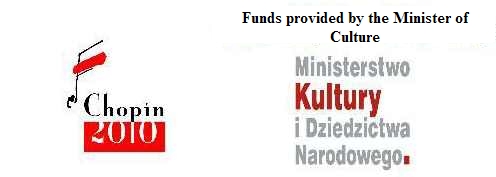"A Varsovian by birth, a Pole at heart, a citizen of the world by virtue of his talent."
This is what Cyprian Kamil Norwid, a romantic visionary poet, said about Chopin.
Europe was Chopin's world. Although in moments of anguish he seriously considered the possibility of emigrating to America, he remained in Paris for the rest of his life. Chopin's art had its origins in Polish musical traditions but its roots went deeper, to the works of Europe's greatest masters of past eras. He admired the genius of Bach and Mozart and thought highly of the monumental works of Beethoven and Handel. In his teens Chopin developed a fascination for the virtuoso style called brillant, which reigned supreme in European piano playing at that time. The performances in Warsaw of the phenomenal Italian violinist Niccolò Paganini enraptured Chopin and inspired him to write his first etude cycle, which is a musical masterpiece. Also Chopin's famous legato, a singing style of playing, had its roots in the Italian opera style of bel canto.
At the other end of the composer's spectrum of interest was folk music, both Polish and that of other nations. Chopin's works, especially those based on dance forms, are widely known to convey his poetic interpretation of Polish popular music. Yet the ‘official' part of Chopin's music also includes the Bolero, the Barcarolle and the Tarantella, which pieces show a similar source although with roots in Spain and Italy. Apart from his ‘official' output, we find evidence of Chopin being open and responsive to the original creativity of the people of both town and country. One is the composer's mention of a Wallachian lullaby he had heard somewhere, and others are his written accounts of nocturnal music-making in the streets of Palma and of singing in the villages around Nohant, of the Spanish song evenings performed by Pauline Viardot and the evenings of Swedish songs sung softly by Jenny Lind.
The composer was open to the enormous wealth of experiences offered by the surrounding world. In Paris, the capital of that world, Chopin rubbed shoulders with outstanding representatives of various nations. He lived through the emergence and clashing of the various trends which influenced historical developments in France and elsewhere. He admired the works of the doyens of literature, he was a keen opera and theatre-goer and mixed well in society. Chopin took a detached view of the political and social scene and summed up current developments wittily and accurately. Paris was like a mirror reflecting life in the Europe of his day but Chopin also had many opportunities to have a close look at that life during his foreign travels, because, despite his poor health and frequent complaints about the inconvenience of long journeys, he travelled a lot in his short life.
In the fifty years after the composer's death many eulogies were uttered and written about him. His works were published and played across Europe. In the early 20th century Ignacy Jan Paderewski took his music to the western hemisphere, thus beginning its triumphant march through the continents. Soon afterwards the most celebrated pianists went all over the globe to give concerts. Record companies were quick to move in, recording the finest performances on discs and releasing them in great numbers. The International Chopin Piano Competition in Warsaw deserves a mention, too. During its impressive history it has discovered and promoted many an excellent Chopin performer, and as a regular event, it attracted more and more participants from a growing number of countries. In the 20th century thousands of publishers popularised Chopin's work and countless biographers wrote his life story in many languages. The Chopin myth inspired literary works, paintings, films and plays.
This website creates a space intended for Chopin enthusiasts from the global village who wish to know more...We invite you to visit it!
Teresa Czerwińska
English translation: Jerzy Ossowski









